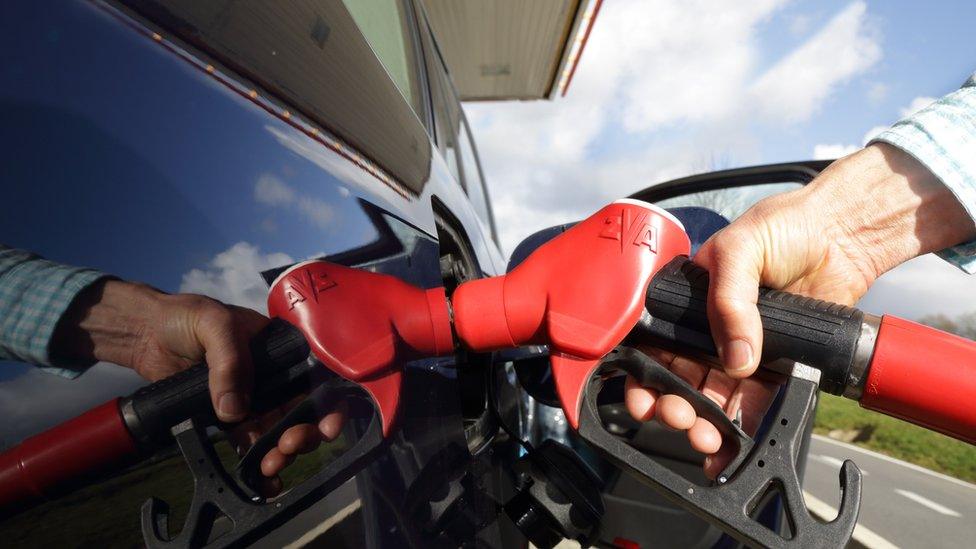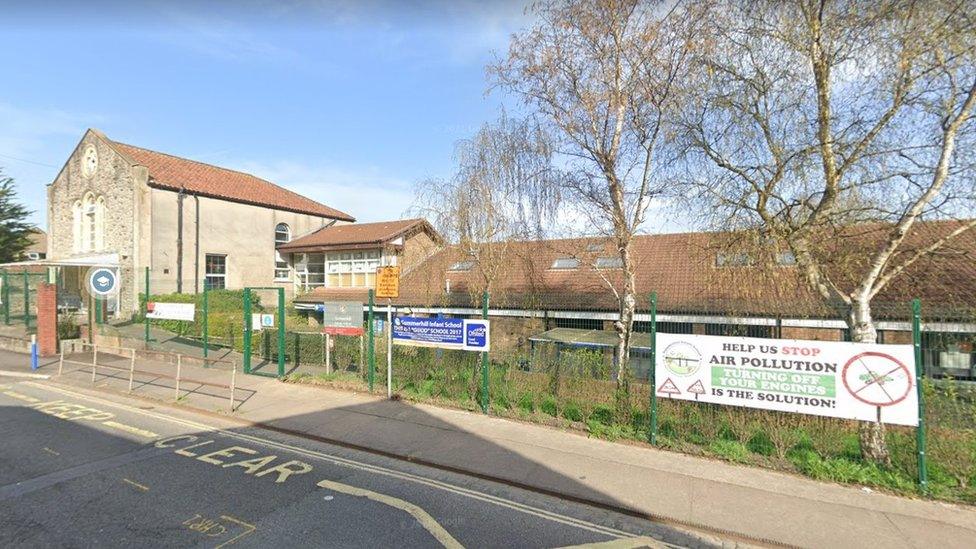Fuel costs: Somerset carer considering new job
- Published

Fatou Taylor says the families of the people she cares for depend on her
A carer who uses her car for work said she had considered switching jobs because of rising fuel costs.
Fatou Taylor covers south Somerset and said the cost of filling her tank had increased by £20 per week.
She said she had never known financial pressure like it in her 15 years of working as a carer.
Angela Kerr, CEO of South Somerset Citizen's Advice, said low-income workers were being hit by cashflow problems because of rising prices.
Self-employed carer Ms Taylor, from Templecombe, said she was already having to cut back on some elements of her job, such as driving people to appointments.
"I used to be able to fill my car up for £36 but last week it was £56," she said.
"That's a big difference.
"I need to be able to earn money to be able to run this car.
"If I don't have this car, I can't go anywhere. I can't do my job.
"This [fuel cost] is the problem. I enjoy the job, I am really passionate about care."
Ms Taylor said in light of rising fuel costs she was considering working for the NHS at a fixed location because in her current role she could not pass on the increased costs to the families of the people she cared for, as the financial terms and conditions had already been agreed.

MPs from different parties have called for VAT on fuel to be cut
"It would be lovely to have government help for self-employed carers who go round people's houses to look after them," she said.
Chancellor Rishi Sunak has said he will help "wherever he can" with everyday living costs, ahead of his Spring Statement on Wednesday.
Some fellow Tory MPs have asked for VAT on fuel to be cut.
'Beware credit card use'
Angela Kerr, from South Somerset Citizen's Advice, said Ms Taylor's struggle with the rise in fuel prices was "a familiar story" for the self-employed and those on low incomes.
"They have a cashflow problem now because they're having to commute to work, so they have to fill their cars up probably weekly and they're paid monthly," she said.
"These two things just don't add up right now because, as we all know, salaries have not increased, and can't realistically increase, in line with these huge price rises at the petrol pumps."
Public transport was not an option for many people working for the NHS, as care workers, in food production or the construction industry, she added.
Ms Kerr said she had heard stories of people using their credit cards to cover some regular costs.
"That's an indicator that things aren't going as well as they could be," she said.
"Be very careful with that.
"It could be a one-off, really exceptional situation, but if that's the norm in your week then come and get some advice."

Follow BBC West on Facebook, external, Twitter, external and Instagram, external. Send your story ideas to: bristol@bbc.co.uk , external
Related topics
- Published20 January 2022

- Published20 January 2022

- Published8 November 2021
